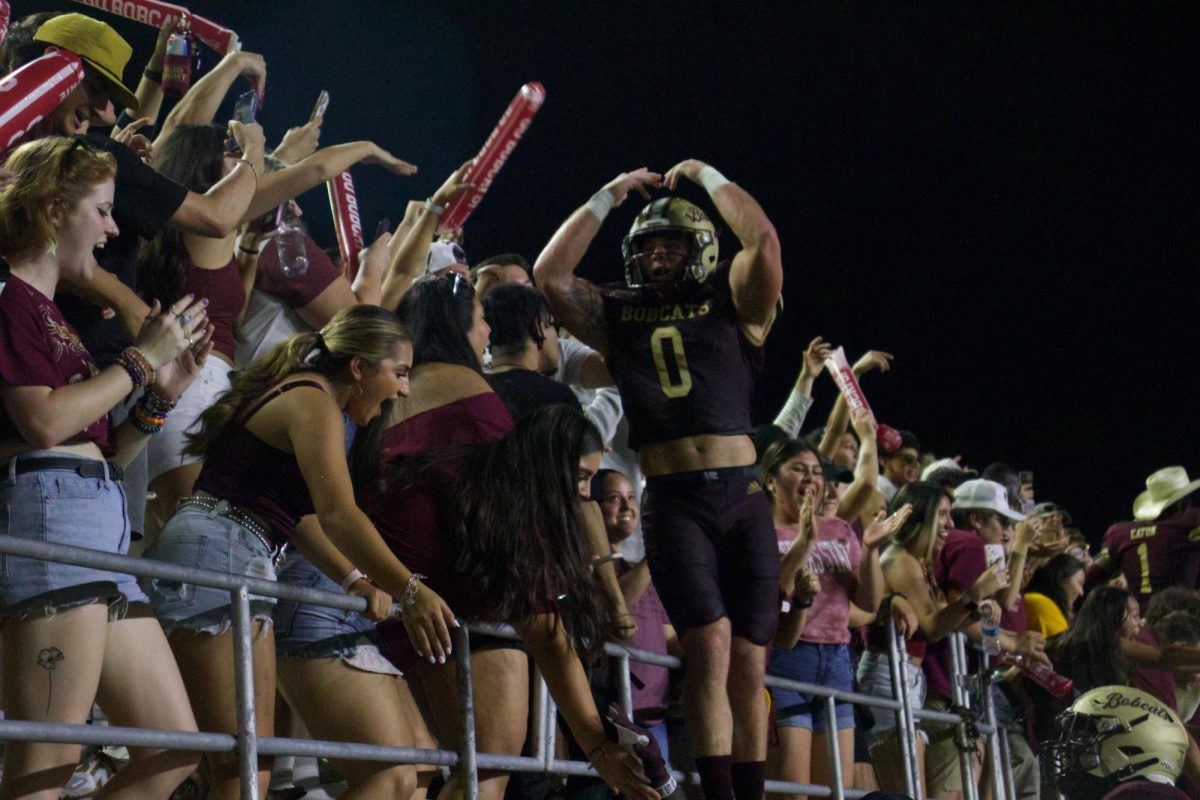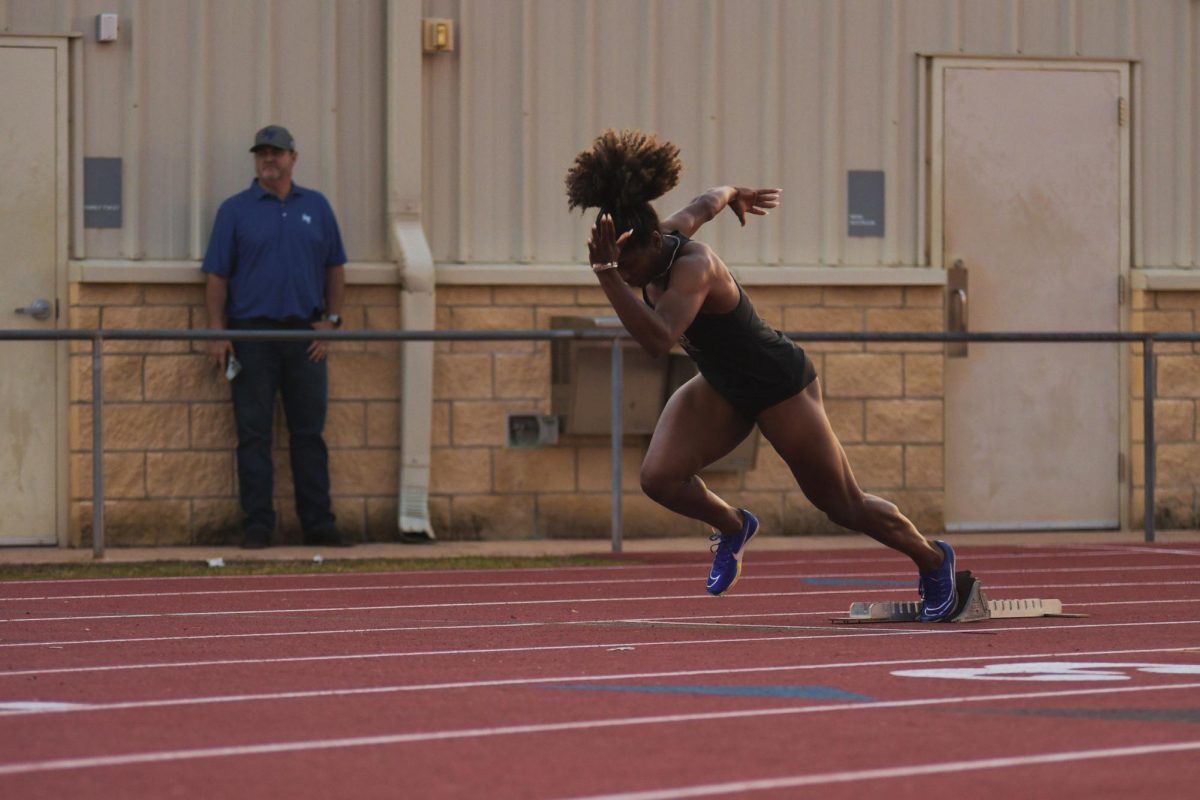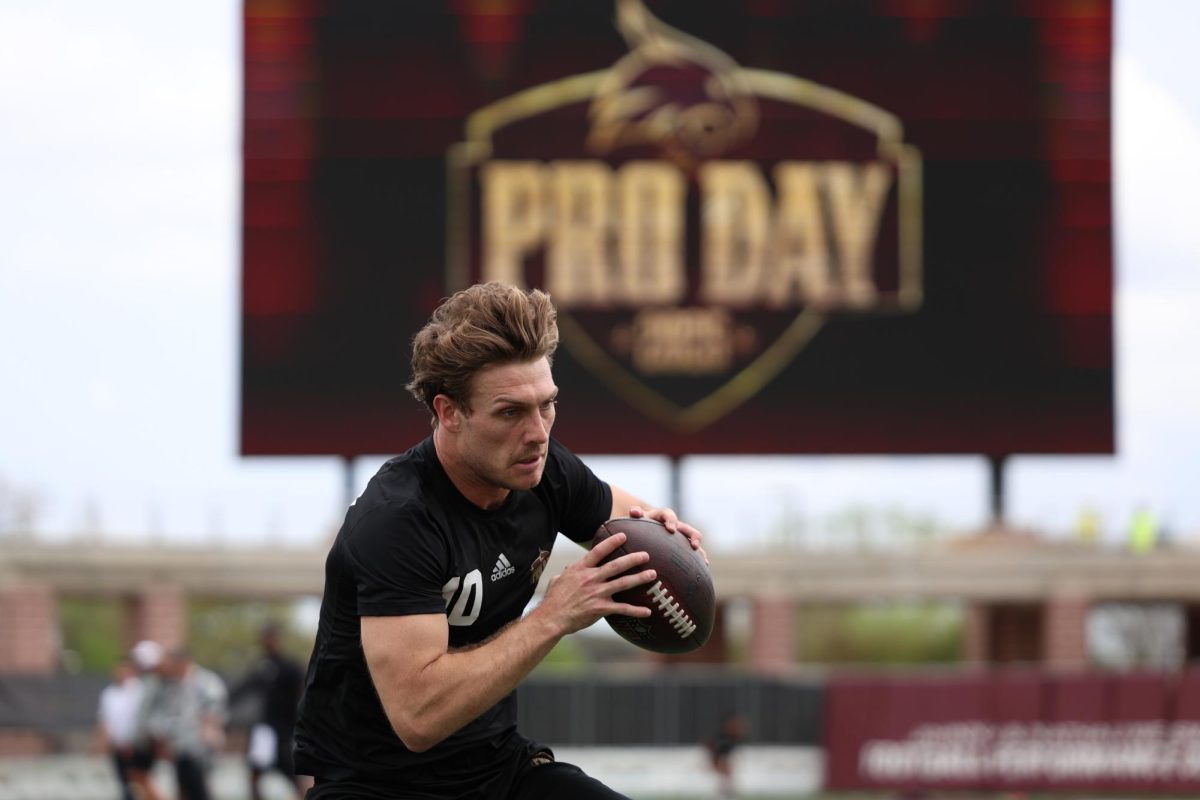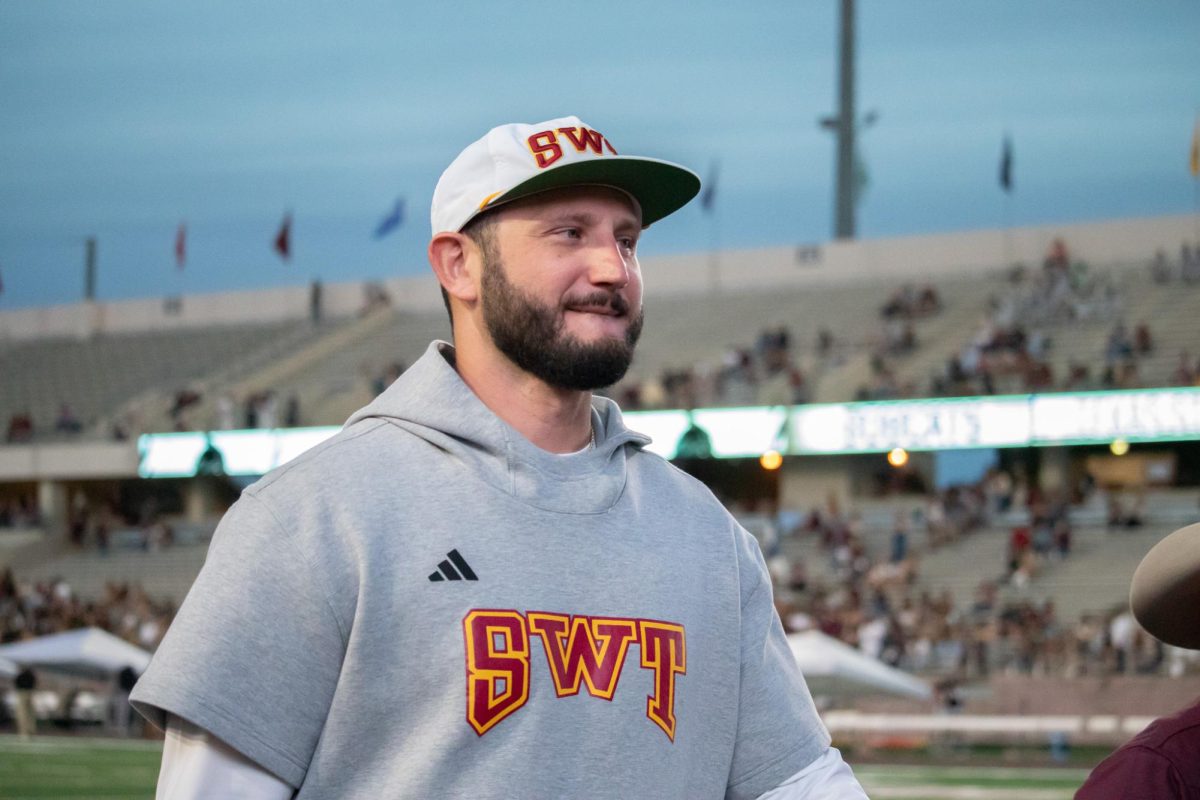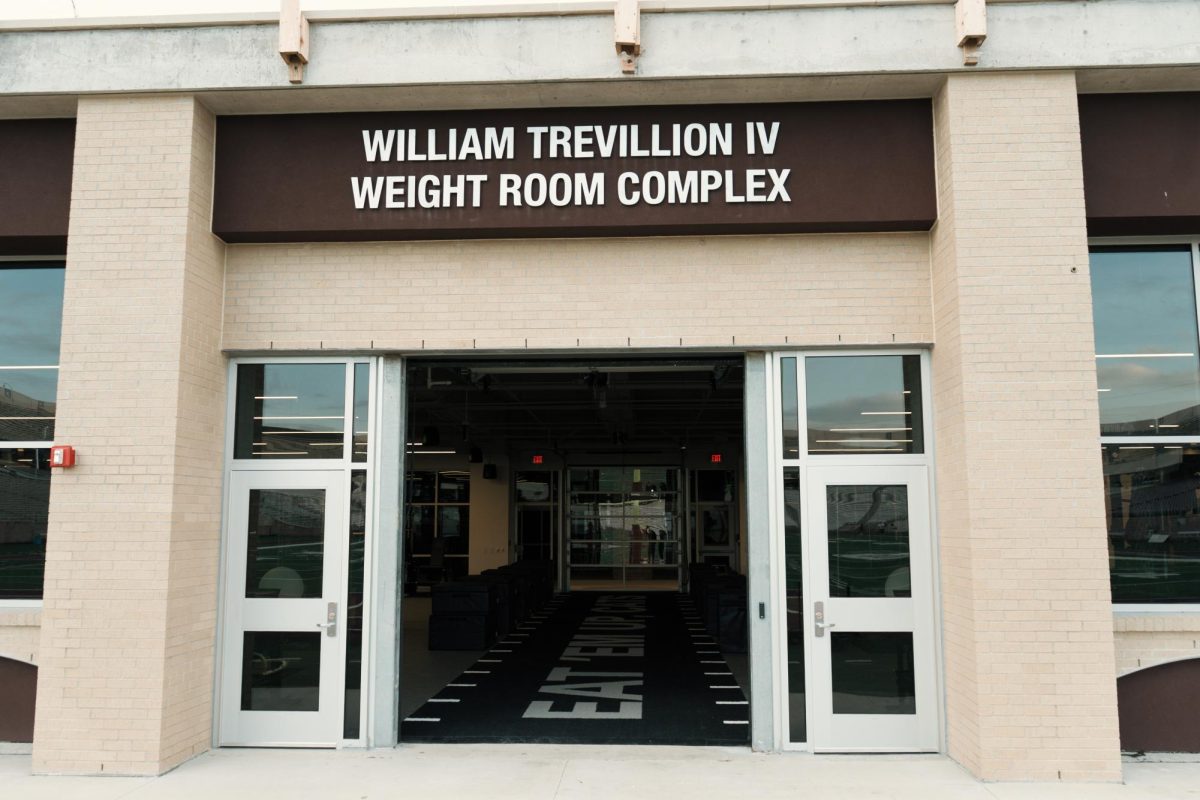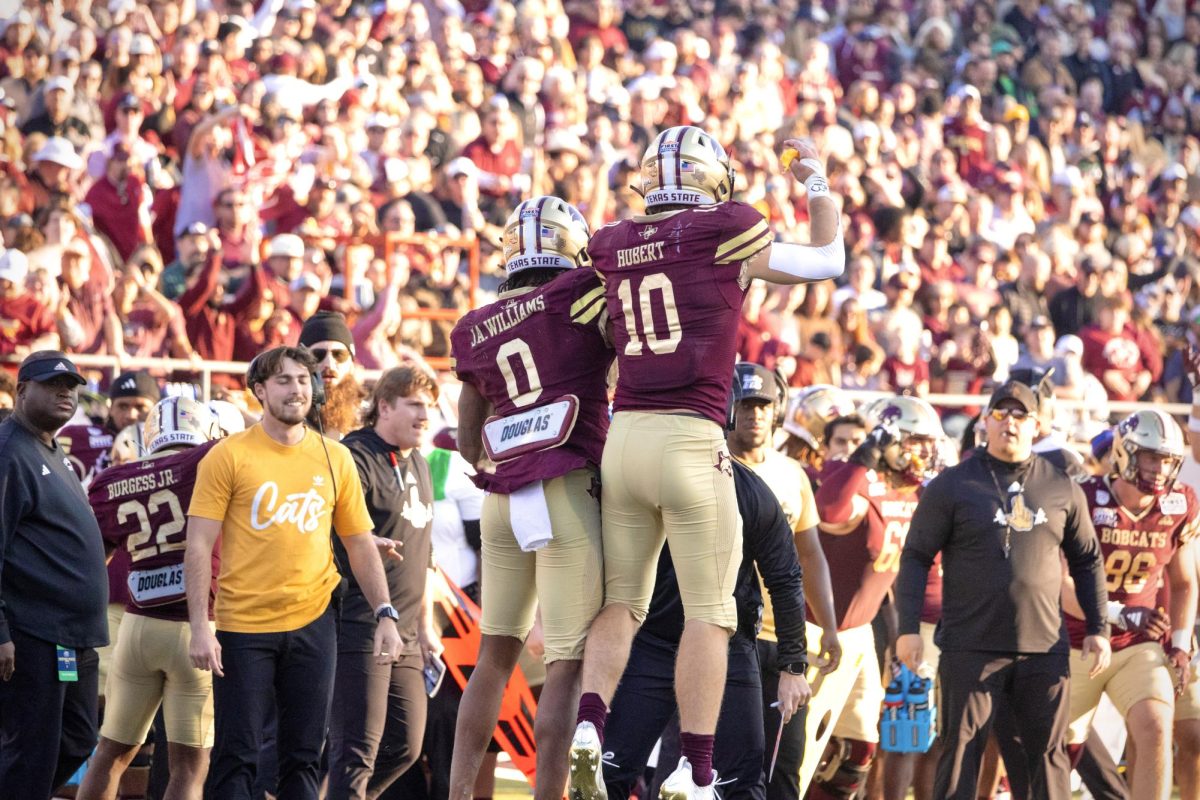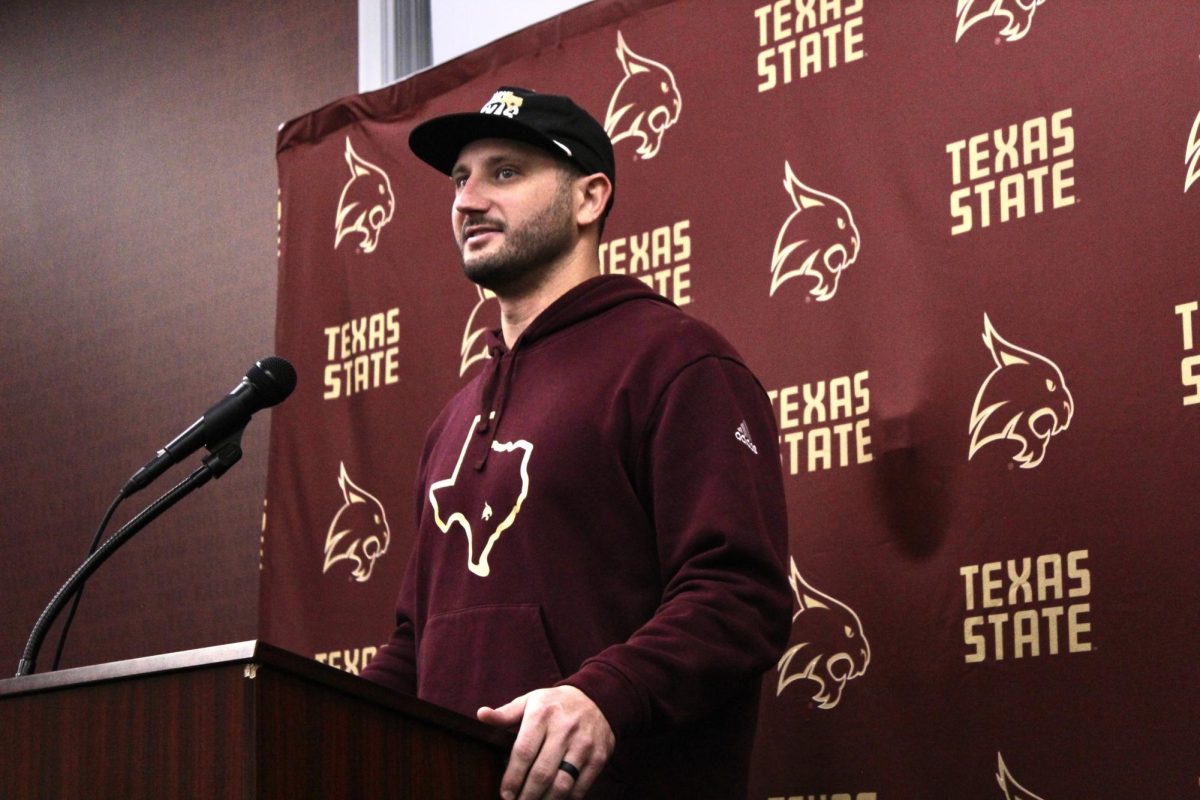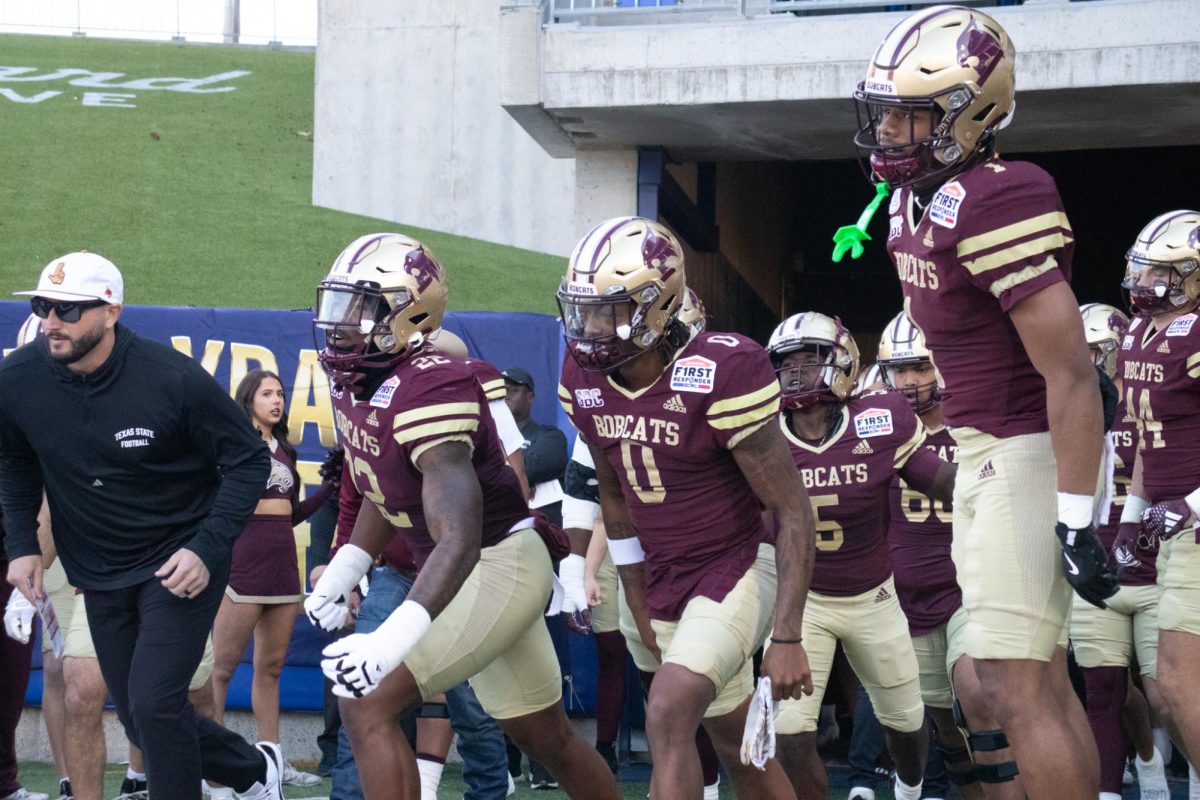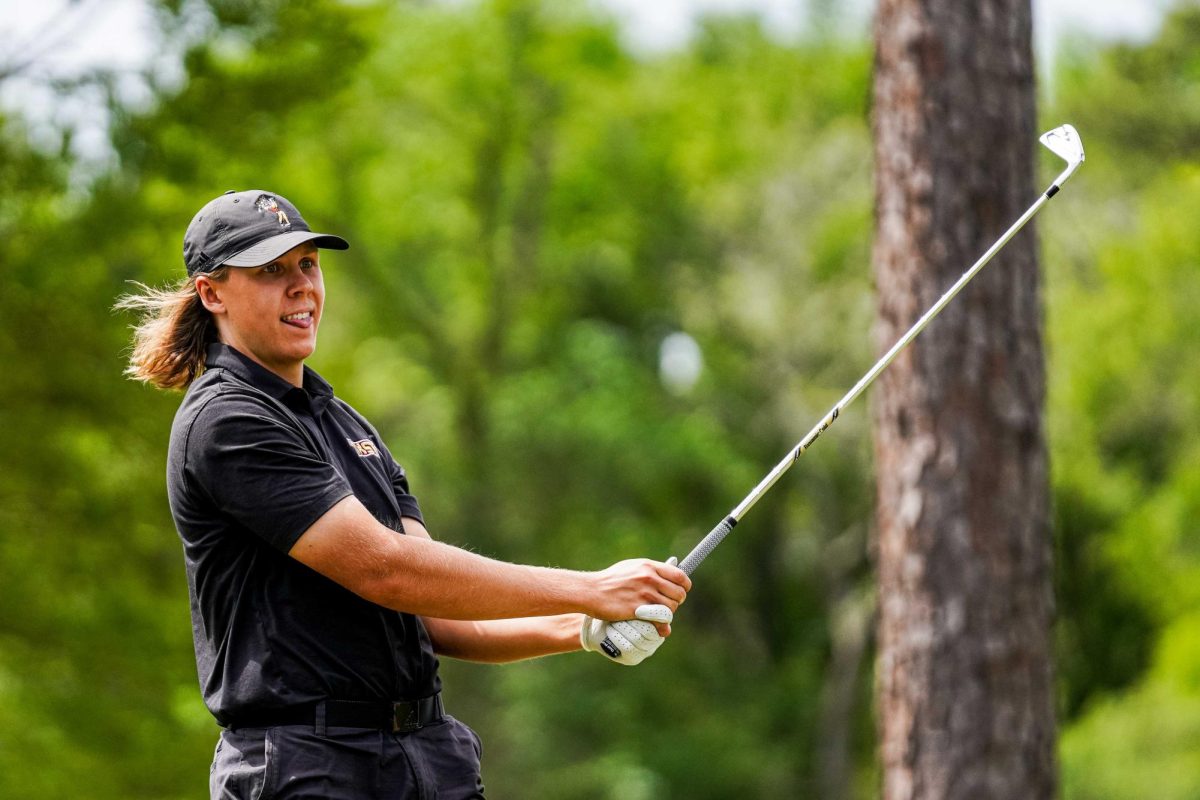The 2023-24 Texas State football roster is loaded with new faces, some of whom came from Power Five programs. However, several of the team’s biggest playmakers took a different path to San Marcos.
The National Junior College Athletic Association is vastly different than the FBS matchups Bobcat fans are accustomed to watching every Saturday. For redshirt seniors Brian Holloway and Kaleb Ford-Dement, that was their world in the early days of their collegiate football careers.
The glamour of life spent at the Division I level is a far cry from the one the two experienced while playing ball at Kilgore Junior College located in the small town of Kilgore in East Texas.
“You really just have to take care of yourself,” Ford-Dement said. “I remember when we were getting ready for [the] season, you had to go buy all your own stuff. Arm bands, cleats, headbands.”
Accessories were the least of their problems when trying to survive JUCO life. Being a student-athlete at any level awards players little time for a job, making the necessities of everyday life difficult for them.
“You’re a full-time student-athlete,” Holloway said. “The school doesn’t have a lot of money to take care of you, so, it’s really a struggle. You have to find ways to get by.”
The conditions at Kilgore College had an impact on coaches as well. Texas State cornerbacks coach Matthew Gregg was a former player and coach at Kilgore College. As a coach, he was tasked with multiple responsibilities that went beyond on the field.
“We had to do laundry, break the film down, recruit, [make the] game plans, everything,” Gregg said. “No graduate assistants, no assistants. Three coaches on defense, three on offense.”
With a $37 million renovation being made to the Texas State football performance center, the former JUCO players remember what workouts used to look like before they wore the maroon and gold.
“We were working out in the community center,” Ford-Dement said. “You could see some sixty-year-old lady getting it in on the treadmill. You could see some thirty-year-old down there doing some curls while you’re dying in the middle of a workout.”
Going through the junior college level is not for the faint of heart. Playing and coaching in those conditions will test a person’s desire to succeed and love for the game of football.
“You’re at the bottom,” Ford-Dement said. “It doesn’t get any lower than [JUCO], but everyone is fighting to either stay there or get higher. I wouldn’t say that JUCO is for everybody. You have to live in an intense mindset for months, years at a time.”
For the former Kilgore players on this year’s Bobcat roster, JUCO is a blessing. Looking back on it, the JUCO lifestyle equipped these players with an ambitious mentality. Now, they carry it with them as they walk around their new multi-million-dollar facility.
“Don’t take the little things for granted,” Holloway said. “Don’t take the resources you have for granted. Don’t get comfortable thinking, ‘This was handed to me’. Take advantage of the resources and better yourself.”
The intensity Texas State’s JUCO transfers brought to the field daily in previous years is one of the Bobcats’ biggest assets. Aside from being high-level athletes, players coming from the junior college ranks have a hunger that can’t be satisfied.
“Having that level of focus and intensity, you develop a chip on your shoulder coming out of [JUCO],” Ford-Dement said. “Guys that go straight to D1 don’t have [it] because life’s been good.”
Gregg served as a recruiting coordinator while on staff at Kilgore College. Now, at Texas State, he is aware of the benefits of bringing in players from the JUCO level.
“Some of the best athletes I’ve ever been around were at Kilgore Junior College,” Gregg said. “With junior college kids, you’re not getting prima donnas. They’re grateful.”
The Texas State coaching staff hasn’t shied away from the junior college talent pool. A total of 12 current Bobcats are from the JUCO system, six played at Kilgore Junior College. Gregg is well-versed in junior college life and acquainted with Kilgore.
“I understand those junior college kids, I know what they’re looking for,” Gregg said. “They’re kind of our type of guys, they come with a chip on their shoulder. Really don’t care about the flash. They’re not asking the NIL question, they’re just [saying] ‘coach I want to play.’ They want to get down here and go to work.”



